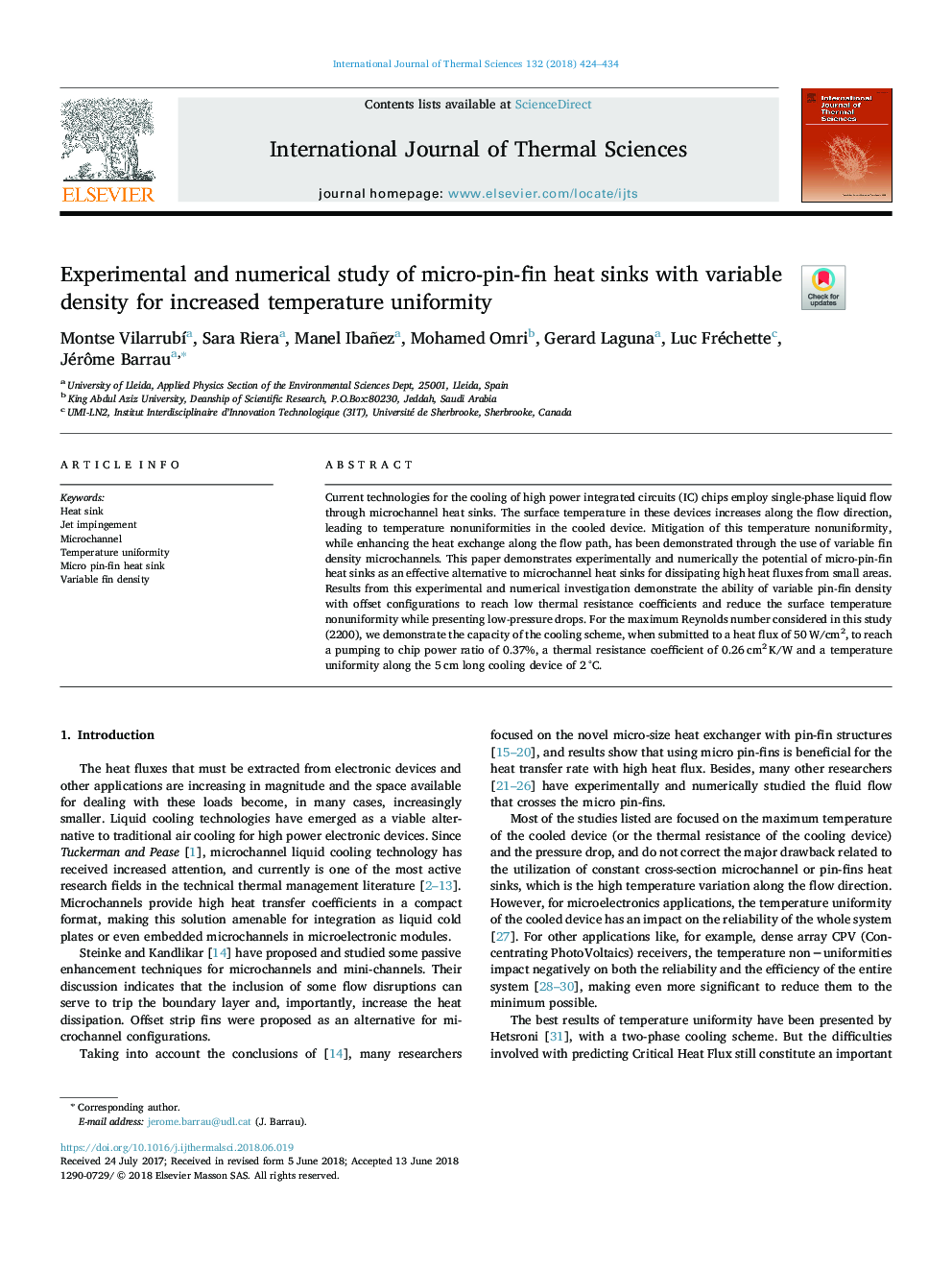| Article ID | Journal | Published Year | Pages | File Type |
|---|---|---|---|---|
| 7060619 | International Journal of Thermal Sciences | 2018 | 11 Pages |
Abstract
Current technologies for the cooling of high power integrated circuits (IC) chips employ single-phase liquid flow through microchannel heat sinks. The surface temperature in these devices increases along the flow direction, leading to temperature nonuniformities in the cooled device. Mitigation of this temperature nonuniformity, while enhancing the heat exchange along the flow path, has been demonstrated through the use of variable fin density microchannels. This paper demonstrates experimentally and numerically the potential of micro-pin-fin heat sinks as an effective alternative to microchannel heat sinks for dissipating high heat fluxes from small areas. Results from this experimental and numerical investigation demonstrate the ability of variable pin-fin density with offset configurations to reach low thermal resistance coefficients and reduce the surface temperature nonuniformity while presenting low-pressure drops. For the maximum Reynolds number considered in this study (2200), we demonstrate the capacity of the cooling scheme, when submitted to a heat flux of 50â¯W/cm2, to reach a pumping to chip power ratio of 0.37%, a thermal resistance coefficient of 0.26â¯cm2â¯K/W and a temperature uniformity along the 5â¯cm long cooling device of 2â¯Â°C.
Related Topics
Physical Sciences and Engineering
Chemical Engineering
Fluid Flow and Transfer Processes
Authors
Montse VilarrubÃ, Sara Riera, Manel Ibañez, Mohamed Omri, Gerard Laguna, Luc Fréchette, Jérôme Barrau,
